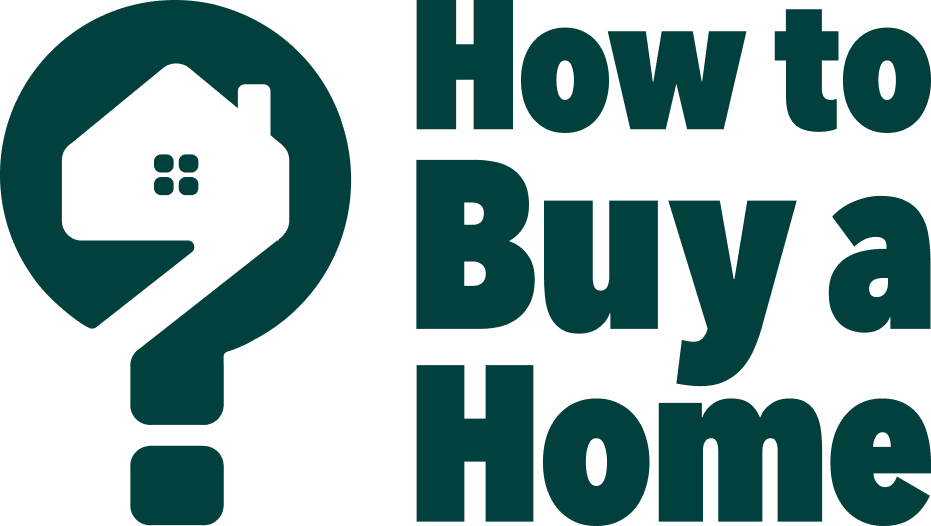
One of the scariest moments for a first time home buyer is writing the offer to attempt to attain their dream home. On today’s show, David Sidoni, the How to Buy a Home guy, tackles this particular challenge. This episode is filled with tricks and tips, hacks and help, for the most nerve-racking event in any buyer’s journey. What are the secrets on how much to offer, when to offer, what to say, finding the little extras to make your offer stand out, and making sure you are getting the best deal?
—
How To Write An Offer For Your First Home Purchase
What Does A First Time Home Buyer Need To Know About Writing The Offer?
“Boomer, please accept my offer.” How do you do it? How do you get your dream house at the right price? You did everything. You saved, scrimped, sacrificed, and you even budgeted. You planned, educated yourself, and hired the best realtor and lender to represent you. After all that, you’re almost there, and now what? How do you write that winning offer? Let’s talk about it.
—
I’m a realtor with the eXp Realty here in Southern California. Early in 2019, after thirteen years in the business, I quit that usual path of real estate agents. I saw many realtors out there focusing completely on the sellers and ignoring what many of them saw as a pain in the booty. That’s you, the first-time buyers. Sometimes, they thought that you were out of touch, clueless, and annoying time sucks. Big shocker. Apparently, a lot of you out there were feeling neglected. We are blowing up with first-time buyers all over the country readers reporting reading the blog and purchasing their first home.
We’ve got hundreds of you out there in the planning process and we are stoked for you working with our fantastic unicorn realtors all over the country. Sounds good to you? First time here? Go ahead and hit subscribe. We’re going to give you a whole bunch of free nuggets. What are the kids say now? “Smash that subscribe button,” and you’re going to get all these jam-packed episodes. They’ll come to you automatically on your phone or wherever you read this stuff. Maybe someday, you’ll be part of those happy readers out there that are buying their first house and are super excited that they’re not throwing their rent out the window every month.
[bctt tweet=”There’s no normal when you’re buying a house because every market is different and every seller is different. ” via=”no”]
There’s a trailer episode somewhere on the side of your Spotify or at the top or the bottom, or everywhere else you read the blog. It gives you the how-to on the How to Buy a Home show. Feel free to jump around. If you’re here jumping, it’s because maybe you’re getting close and you’re wondering you have all these questions about the almighty offer. Here it is. The whole country is excited to find anything good happening or any good news. I’ll start this off as my usual Captain Positive, “Mr. You Can Do This.” I’m going to bring you a message of hope when you’re getting ready to write that offer on your house. Call me Schmoopsie McFluffypants.
Get ready for some positive reinforcement later because first, it’s time for me to give you some straight truth. The offer is probably the area that I hear the most well-intentioned but widely inaccurate and incorrect advice and guidance. In the entire process, this is where I hear the worst advice from people talking to first-time buyers. Everyone thinks their experience is similar to how it’s going to go for everybody else. If you aren’t getting all the credits, deals, low prices, and all the extras that they got when they bought a house, then that means that your realtor is not good, you’re getting cheated or stupid and don’t understand the process.
This could not be more wrong. I don’t give a freaking skinny rat’s butt what people tell you, there is no playbook. There’s no normal when you’re buying a house. Why? It’s because every market and seller is different. Let’s start with the seller. This is a one-off sale. I’ve mentioned that in the show before. It’s one time, one seller, and that seller might be cuckoo crazy. I’m talking Kanye-nuts. This transaction is also barely regulated and the seller can choose whoever they want for whatever reason. As long as they don’t discriminate, they can decide to stop selling the house the day that you’re ready to write an offer. They do whatever they want.
This is not a restaurant where you can complain to the manager if you don’t like the way you’re being treated, Karen. This isn’t a big airline where if you’re mad at your service, you can send a tweet and they’ll feel bad about it and give you a free voucher. Your seller absolutely does not care what your Uber businessman dad says about how real grown-ups typically negotiate. Remember, the seller answers to no one. Why so harsh to start off? You’re like, “David, I put you in my ears so I can get some good news. Where’s Mr. You Can Do This?”
A true advocate is someone who’s looking out for you and all your emotions and everything that you’ve got tied up in the transaction. We’d rather disappoint you now, and then build you up along the way with trust and guidance. We’d rather do that than stringing you along with pie in the sky and a bunch of BS for a few months, and then crush you when you get to the magic moment. As it goes, you might have some disappointments along the way as you’re trying to buy a home. You might have disappointments when you put in your offer. If you’re like my clients in ‘18, ‘19, or ‘20, you might be looking at putting in 2, 3, 4 offers before yours gets accepted. It might be a battle to get what you want.

What are you going to do? Here’s the positive side of things. You’ll be able to handle it a lot better if you get mentally, emotionally, and financially prepared for it. Prepare for it and you can be confident. That’s my goal to make you confident. I want to make you not run for the hills. Quite often, I have seen the prepared first-time buyer get rewarded for being prepared. I’ve seen it where you find a normal seller and get a great deal and everybody’s happy. It happens a lot. To help you with your confidence building, let me tell you something else that’s bitterly disappointing. Your closest allies and all the people giving you advice don’t know jack.
Their stories and advice from when they bought their homes are as valuable as the little blue bag of poop that I carry around when I’m walking my dog. I love them all. Don’t get me wrong. Timing is the key to how you present your offer and I’m sure most of the people giving you the advice didn’t buy a house yesterday. It’s all about timing. Is it an upmarket or a down market? Is it a bidding war market? The house that you looked at, are you the only person to have looked at it in the last two months? To know how the market is reacting at any given time, you’ve got to listen to the pro-team that you’ve worked with for months or maybe years before this. The people that you’re working with, that pro-team, are in that market every day.
Unlike all your allies, friends, uncle, mom, dad, and grandparents, these real estate pros that you have that are working with you were active in this market yesterday and this morning. That’s the only market that matters when you’re writing an offer. It’s not the market that the people who are giving you advice when they did it. Their market has nothing to do with you now and your offer. Those are the big keys. The first is that it’s a one-off sale from an unregulated seller working with no rules and assume that seller is possibly a big bag full of crazy. You never know. Sometimes, it might work to your advantage. It has for some of my buyers.
Secondly, timing is everything. Nobody knows the timing in your deal unless they’re putting in an offer on the exact same model, on the exact same track, on the exact same day. It’s funny, the Boomers hate to hear that, but adapt or die. How’s that for some fun talk? I thought long and hard about how to structure this episode and soon I realized that in order to answer everything about the offer if I did that, this episode will be four hours long. I pictured you out there in your car or on a walk or on a run or doing the dishes or sitting on the couch watching your partner playing video games while you try to make plans for the biggest decision of your life. Maybe you’re starting to re-evaluate the life choices that you’re making right at this moment. That would be awesome.
How Do I Write An Offer?
Please tell me that’s one of you. Please tell me one of you is sitting there looking at the other person going, “What the hell am I doing?” DM me if that’s you. I’ve got to know. Maybe you’re out there and you’re thinking these things about writing the offer. “How does it work? How do I write it? What price should I write the offer? Can I lowball? What the hell’s an appraisal? How long can I wait to write an offer after I see the home? Should I sleep on it? Can I negotiate on a new construction home being built right now? How much should I put down? Is a first-time buyer looked at as lesser than some old dude buying the house? What do I tell the seller? What do I tell my realtor? Should I play hardball? Should I ask why the seller is moving? Should I write a letter? What kind of loan is best? How do I make my offer stand out? How do I get them to say yes? Is that Yoda’s baby in The Mandalorian? Is he already 50 years old because it looks like a toddler? Yoda was 900 and only looked about 97. Is it like the dog years’ formula but in reverse?”
[bctt tweet=”The seller answers to no one. ” via=”no”]
Let’s answer those questions. Starting right off with, how does it work and how do I write it? The good news is if you hire a unicorn pro, you don’t write it. In fact, if you do write it, that’s against the law in most states, so please don’t. If you have a solid pro, they’re going to guide you. They’ll always be presenting you in the best light to the seller. The good news is most contracts in most states, the contract is written to protect you, the buyer, so you can feel good about that. The fact that you’re being written in the best light that they’re trying to present you in the best way possible is huge because understand, that piece of paper and the way it’s presented to them, that’s how you get judged. That seller is judging you. The other realtor might be presenting more than one offer to the seller and that other realtor is judging you.
That realtor is reporting back their opinion of what maybe these multiple offers look like. If not, a lot of times, they’re completely influencing the seller with their opinion about what they see. You need to have everything looking great so that your offer gets to the top of that pile. Think about that. Maybe the person that is going to be in the best position to present your offer is not your sister who’s only sold two houses and one was to your aunt. They might not have all the insider rapport and all that colleague-to-colleague stuff. Maybe not have their professional swerve on. A solid agent with a solid prepared buyer, that’s much easier for the listing agent to present to their seller in a favorable light.
Someone that they think, “These guys are cool.” When I’m working with the seller, if I don’t know the buyer agent and/or the lender who’s presenting the offer, I look them up. I do a little work. I do some research and I check on their history before I ever tell the seller, “This is a good deal.” You learn right away that if it looks too good on paper and you don’t know anything about those people, it’s probably not as good as it looks. You’re not the only one being judged. Your team is. There’s lots of great information on this in episode 33. That’s my interview with Alvin and Ashley the bomb-diggity couple that almost lost their dream house because they begged me to put in an offer before they were totally prepared.
The seller ended up taking another deal because ours was coming at the last minute. It turns out that the buyer on the deal they accepted backed out. Alvin and Ashley had another look because even when we were rushing our first offer and I presented it in a polished professional manner, the other realtor then got to turn around and present it to the seller without putting the home back on the market. They were like, “I don’t want to work to put this whole thing back on the market. You guys are a little sketched and scared because you got burned because that first buyer bailed. This guy is good. This offer is good. These people want to do it and now they’ve got all their ducks in a row.” The presentation matters.

Sometimes your offer is going to get accepted because the other agent knows or they do what I do and they look you up and they find out, “That buyer agent is a rock star. He’s going to get things done.” They’re doing that because that’s the best thing for the seller. When you represent the seller, you want to make sure this deal is going to get closed. I’m not going to lie. Sometimes it’s because the listing agent or the realtor that’s representing the home is a lazy piece of crap. They pick my offer because they know, by my offer presentation, that I’m going to do most of the work for them and they can cruise to a commission check while I run the whole transaction.
It sucks for the seller that they’re getting such crappy service and it means that I have to work twice as hard as the buyer agent because I’m doing my job and their job, but I don’t care because I get my end result. You, the first-time buyer, get the bomb deal. You become a super stoked first-time buyer who gets your dream home, “Done. Awesome. Love it.” Let’s do it no matter why they picked us. Let’s go ahead and keep moving forward. It’s fantastic. Your realtor is going to handle all the technical side of picking and choosing all the right things to do in the offer. You don’t have to stress about what things you should do or shouldn’t do or should offer or shouldn’t offer.
Your realtor is going to explain to you how those things are working in the market, the right things to negotiate tough on, to let slide, and to give them is a little extra. It’s like, “We didn’t ask for the home warranty here because we want it. We know you got lots of people coming in on it.” There are a bunch of little things like that. It gives the extra polish to show, “We know how this works and we’re not going to nickel-and-dime. We’re going to give you this little extra incentive here.” Follow their lead. They’re going to present a super slick and professional presentation that screams, “Not only is this a great offer but we are not going to be a problem for your sellers. We understand the current market and we have the team to get this deal closed.”
Believe it or not, your offer is much more than a price. The biggest thing that scares a seller is they’re going to take the home off the market, stop all their marketing, and then two, three weeks in, the deal is going to blow up. There are many nuances in writing these offers. They’re never about price. They’re looking at many things. Don’t get hung up on that. That can be hard. Especially the first time buyers, you’re going to focus directly on that price. Your realtor is going to be looking at all the aspects of the deal.
Let them figure things out for you. Let them try to find out the personal motivations of everybody on each side, both the buyer and the seller. Evaluating the emotional pieces. Reading the other realtor. Figuring out the best timeframes. Using real detailed market data instead of trying to fly by the seat of your pants, backing up exactly why you’re presenting this price with a true, factual data-based price analysis. I could go on and on with all the things that the realtor does to design the perfect offer that they can present. What you need to do is help, that’s your job. You can help your realtor by getting everything to the lender weeks before you even think about writing an offer.
You can go back and listen to episode 33 for more on that where Alvin and Ashley jumped the gun a little bit. Once you’re in, don’t focus on the price. Realize that’s the first part of what’s going to be happening. There’s going to be a lot more going on after that. You best be all-in. Get yourself emotionally ready for what’s happening next. You and your team are going to go out on a limb for you. Get your mind right but don’t stress out. You’re going to be fine. Read the blog. How does it work and how do I write it? The main answer from everything that I said is, it depends. What’s your timing? Where are you in the market cycle?
What Should I Offer?
Next question, what should you offer? “It’s a great question. I’m glad that you asked. You’re the smartest person in this whole room wearing earbuds.” This is a biggie. I’m going to cover a lot of ground here. What should you offer? What should the price be? Many of you may not love to hear this but this is a question that should have been answered before you even got to this point or right in the offer. You should have worked with your realtor and study the market, looked at the sales, seen a few homes, asked some questions, and looked how long to see this home was listed, to name a few of the things that you should have done before where you’re putting pen to paper or clicking the electronic signature as it were.
Here’s a big tip for you as you’re thinking about what price. As you’re looking at other homes, remember the asking price, the list price on other homes, it’s irrelevant to the actual value of the home. You want to be looking at the sold prices of homes. If you’re doing it right, you’re going to be able to read the blog and find yourself a unicorn and you’ll learn the speed of the market and be able to tell if a home is sitting because it’s overpriced or because perhaps it has some red flags. That’ll help you get a good sense of the market. As you’re looking around and you’re getting a broader scope of the way things are moving and how they’re selling, it’s time for you to zoom in and get tight on the prices of the properties that are comparable to the houses or house that you’re looking at. In real estate jargon, you might hear your realtor talking about looking at the comps. I love it when they say that, “Show me the comps.”
If and when you can, the more precise the realtor and yourself can be in finding truly comparable properties, the better. Apples to apples rules. That’s the deal. It’s also a cool party game. It’s a little game of cards. It’s fun. Apples to apples, that means going beyond simply considering the square footage of the house. Another tip, do not get hung up on price per square foot. This can also often be irrelevant. If you’re looking at an apartment or condos and you see the same model, and floorplan, one could be a penthouse and the other one could be on the first floor with a master bedroom that looks out to a dumpster in an alley. True story. It happened to some of my buyers.
How the heck does the price per square foot come into play there when they’re the same square footage and same square plan or same floor plan? There are several factors that end up becoming subjective. Yes, it’s good to try to narrow it down and get apples to apples so you can get a real comp. Even apples to apples are not always the same. If you don’t believe me, cruise over to your fancy local supermarket and see how many freaking types of apples there are these days. Why do I pay different prices for apples? There’s Fuji, Golden Delicious, Granny Smith, Lady Alice. What the hell is Lady Alice? It’s a thing. It’s an apple. Even apples to apples can be different. Don’t put all your eggs into the price per square foot basket there. That’s the end of my grocery talk analogies.
[bctt tweet=”When you’re trying to buy a home, it might be a battle to get what you want. ” via=”no”]
You should study properties in the same neighborhood or similar neighborhoods nearby and realize that there could be other factors for homes that are similar that could completely change the value. You could have homes on the same street but a school board that goes right through the middle of it. One school is great and one school is not. It happens. You’ve got a ton of things to think about. You got to think about lot size, pools, views, historical properties and values. Some of those have large tax incentives, proximity to power lines, HOA amenities, parking facilities if you’re in a condo or townhome. You got to think about, “What’s going on in the neighborhood. Are you in the airspace of an airport? My favorite thing to make sure of, what do you do? How much value do you put on the fact that what if they got hot neighbors?” Everything but the last one. You get my point.
It’s not as simple to do a like for like comparison. It’s so fun. It’s all subjective. The seller probably thinks their home is fantastic. I wish it didn’t work out that way but sometimes it does. They think that their home is way better than Agnes’ home down the street, “I know my home is better than hers. It sold for $500,000 three months ago.” “Agnes’ place was listed at $500,000 but it sold for $460,000 and that was six months ago. The market has gone down 3% in that time.” You got to study. You should be gathering all this intel while you’ve been out there shopping for your homes. You should be studying that online.
This is a big one that my first-time buyers do all the time. When I send or your realtor sends you homes, do not look at the pictures to see if the home is pretty. Look at all the data. Get nerdy with it. “How many days is it on the market? What year was the home built? Is the lot size the same as every other lot size in the neighborhood?” You need to look at all those pieces of information. That way you can start to evaluate and you can be a price pro. You can’t become a price pro overnight when suddenly you find a house and you decide who you want to write an offer. You can’t cram like it’s a midterm. Remember, knowledge is power. In any negotiation, the person who knows the most about the actual situation usually wins.
How do you decide if a home is a good value? You’re getting ready to figure out your price. How do you feel comfortable with it? You feel comfortable because you’ve been educated with your realtor, your lender, your entire team supporting you before you even got in the car to look at homes. You got more education and more with every home that you looked at, every picture you looked at online, every piece of data that you took in, and every home that closed in the market. You watch to see what other homes were selling for and you check to see how quickly or how slowly they sold. Days on market will become a term that you’re spinning in your head all the time. These decisions have been made before you ever sign any contract.
For example, my pips, Tom and Vanessa, we were looking at houses here in Southern California. This is a long time ago. We were buying in a down market. It was a sketchy time to buy. They weren’t super picky. They were trying to figure out a place to go and they had a couple of neighborhoods. They had time to wait it out as the market kept dropping. We saw a few homes over a few weekends and a few months. We kept seeing the prices continue to drop. By the end, because they weren’t very picky, they would pick a few homes they liked and then they’d say, “Pick some more for us, David.” I would. When we got to those places, they didn’t have any information on the home. We’d walk in the front door and they would play Price is Right.

Seriously, by the time they got to the end of the threshold and not even all the way in the house, they each start guessing and they nailed it almost every single time because they have done all their research. If they were too far off from the list price, then we knew the home was overpriced because they were confident. Don’t look at homes, learn. Online first, then in person, then with your realtor, and from your own eyeballs. If you do that, you’ll know what to offer. Wrapping things up, “What should I offer?” The main answer to this question is, it depends. What’s the timing and where are you in the market cycle?
Can I Lowball?
Next question, “Can I lowball?” I hear this all the time. If you’re reading this, I hope you guys know where I stand on truly wanting to help first-time buyers. I want to lift you guys up, get you confident, make you feel comfortable in what you’re doing. I never want you to overspend. I never want you to leave money on the table. I’m on your side. I always want my clients and all my readers to get the best deal they can. I don’t want you readers out there feeling, “Is this an opportunity where I’m going to overpay for a house?” Sometimes I’ve had a lot of people who end up doing that because they want to get in but rather than me tell you how to lowball, I’m going to tell you how your lowball offer would be perceived by the sellers. How they will see you, accept you, and how that affects your chances of getting a home. I might hurt a few feelings here if you’re a bargain shopper so stay with me. Regular readers, you know me, I’m living in the real. I am always transparent.
I’m not sure that I love that buzzword by the way. “What the hell is transparent? Do you mean I’m not a jerk hiding stuff from everyone so I can personally gain from every situation that I’m in?” I’m then transparent. I would call that being honest. Have you ever heard of the golden rule? Call it what you want, being real, being straight, or caring for your fellow man. It’s a classic concept. Maybe we should all try that in 2021. Let’s see what happens. Here comes the real. Should you lowball and try to take massive advantage of someone else? Should you try and screw the other guy and get a dope deal? Do I even have to tell you? If you still want to give it a shot, surprise, the main answer to the question is, “Should I lowball?” It depends. What’s the market timing and where are you in the market cycle?
[bctt tweet=”Knowledge is power. In any negotiation, the person who knows the most about the actual situation usually wins. ” via=”no”]
Here are some facts on home prices and where and how they sell. We have something called Sales Price to List Price Ratio. In other words, the amount that the home sold for compared to the amount that was listed on the day that someone wrote an offer. Usually, the average sits around 97%. I know that you’ve all heard stories about way over way under and yet that definitely happens but usually the peaks and valleys of the market. Depending on the timing, but most of the time, if a home is overpriced, the seller usually ends up reducing the price to get to the actual value and that’s when the offer starts to come in. That’s why the average is around 97%.
If we’re at a 93% or 94% sales price to list price ratio, then we know we’re in a deep, weird changing market and if we’re at 105% or 106%, we are now in 2021 where people are overpaying on the list price, then we know and we’re in a hot seller’s market and demand is high from the buyers. Once they get into reality, most homes sell at that 96% or 97%. You might be thinking, “David, you told me to do all this research so I did and now I know this home is worth $400,000 but they’ve got it listed $450,000 for two months. The average home in this area is selling in less than a month so I’m going to offer $380,000 because I’ve done all the research told me to. If they’re not willing to sell, I needed to understand, at least I can throw it in there and give them a realistic offer since the home is sitting there.”
Do you want to know what the agent that’s working with that seller is going to say to them? They’re going to say, “Seller, where do you think that all buyers start their home search?” They start online. How do those sites work? You go in, they look at the house, they pick a neighborhood they like and they pick a maximum price. Sometimes when you’re picking the price that comes and the chunks are at $25,000, $50,000 in the drop-down arrow up to $350,000, $375,000 up to $400,000. They’re like, “Why would you look at an offer of $380,000 when we’re listed at $450,000 and I haven’t even had a chance to market the home for you at $425,000. All those people who put $425,000 or even at $400,000 online searches, they’re not even seeing your home, because we’re listed at $450,000. Before you take $380,000 at worst, let me list the house for $399,000 and let’s see if we get all those buyers out there who have never even seen your house yet.”

There’s this next thing about real estate and once again it sucks for you if you’re a first-time buyer and you’re thinking about lowballing. The truth is that with rents going up and continuing to go up, faster than views on a viral video of some grandma doing a shuffle dance on TikTok, face it, real estate is a banger investment. For people with a whole bunch of money, it’s stable. Any true deals get snatched up by all the cash buyers and lots of the time it is the realtors or developers or people that are involved in real estate who got a whole bunch of cash. “Sorry, gang, you aren’t beating somebody with cash.” Now that we have this intricate series of tubes called the internet, there are no hidden gems. No one’s hiding anything.
Any fool can take their camera phone, go take some pictures and put their home on the internet, and tens and thousands of people are seeing it. There’s nothing hiding under a bush, no under the radar super steals left in the world. We’ve got the information superhighway. Forget it, the internet is selling homes. Here’s one that a lot of first-time buyers don’t even think about and I’m not saying trying to put in an offer and save some money is a bad thing. I’m not saying that you’re greedy, sneaky or that you have bad intentions. I hate that a lot of realtors let you focus so hard on price without explaining this huge aspect of putting in that first price. That first price sets the tone for the rest of the transaction.
Don’t blow all your negotiating power right up top. You’ve got at least two more negotiations to go before you get the keys. Yet you’re not done. The purchase price is the beginning. You don’t want to have a winner and a loser with the purchase price. You still have to do physical inspections on the property and depending on where you are in the country, lots of physical inspections and that could change the price. It’s by you either asking for repairs or asking for credits to do the repairs on your own. Who’s going to pay for that?
That’s a whole other negotiation and what if you do decide at the inspection and you figure out there’s a hole in the roof, a leak or something like that. If you’re going to be asking for a negotiation for that, if you’ve already done something to put you guys in a place of animosity or if you are a hardcore jerk at the beginning and he ground them to the bone on the original price, how likely do you think they’re going to be to shave off some dollars here or there? How likely do you think you guys are going to agree on how much it costs to fix that hole in the roof or do something with the sewage or the well?
Remember that the first price negotiation is the beginning. Whatever your negotiation technique is, realize you’re going to have to do it again after that first initial negotiation. The one that comes after that is, if you, the buyer are using a loan to purchase the house, which I’m assuming most of you out there are, then you’re still going to have an appraisal. There couldn’t be negotiations with an appraisal if your appraisal comes in undervalue, you’re going to have to renegotiate. I’ll explain all that because that is the next question. “What the hell is an appraisal?” Wrapping up the, “Can I lowball?” The answer is, it depends. What’s the market timing and where are you in the market cycle?

That’s a lot and we’re not even halfway through all the fictional questions I created that you fictionally asked me. I’ll tell you what I’m going to do. I’m going to tease you and we’re going to turn this into two parts, this will be part one. I’m going to tell you all about part two, and what’s coming up next. If you’re out there, and you’ve got all these tips, but you’re also realizing that you need to have a Marvel comic level superhero representing you reach out to me and we’ll see if we can find you one on our unicorn nation. They’re out there. They’re those experienced agents who are unicorn-like because they love first time buyers, but they’re also experienced and they won’t blow you off. If you need a guide, send me a DM on Instagram at, @DavidSidoni or you can join the Facebook page, How to Buy a Home on Facebook. Check me out on YouTube, Twitter or the big one, go to the website, DavidSidoni.com, and fill out the contact form.
I’ve had people do that and they say, “I listen to you in my ear holes. I need a unicorn in this town.” As a matter of fact, I hooked up with seven new readers and they were in all stages from a 1.5 out to someone ready to go look at a home. Please, if you have some specific questions, reach out, and let’s keep helping other people subscribe, and review. I love those reviews. They help push us up on the charts and get other people to find us. I told you I was going to tell you. Here you go. This is the teaser for the next episode. We’re doing a teaser. Here’s the teaser part two. These are the questions we’re going to answer.
It’s going to be coming up or more than likely everyone else has been binging this in the future, you can go to the next episode number 40. In part two, we’re going to cover, “What’s an appraisal. How long can I wait to write an offer after I see the home? Should I sleep on it? Can I negotiate on a new construction home being built right now? How much should I put down? Is a first-time buyer looked at as lesser than some old dude buying a house? Should I play hardball? Should I ask why the sellers are moving stuff? Should I write a letter? What loan is best? How do I make my offer stand out? How do I get them to say yes and how old is baby Yoda?” That’s a good place to finish. There is no try. You can do this.
Important Links:
- Spotify – How to Buy a Home
- Episode 33 – How These Planners Bought Their First Home And Learned Their Plan Wasn’t Enough!
- @DavidSidoni – Instagram
- How to Buy a Home – Facebook
- YouTube – How to Buy a Home podcast – David Sidoni
- Twitter – David Sidoni
This podcast was started for YOU, to demystify things for first time home buyers, and help crush the confusion. After helping first timers for over 13 years, I knew there wasn’t t a lot of clear, tangible, useable information out there on the internet, so I started this podcast. Help me spread the word to other people just like you, dying for answers. Tell your friends, family, and perhaps that random neighbor you REALLY want to move out about How to Buy a Home! A really easy way is to hit the share button and text it to your friends. Go for it, help someone out. And if you’re not already a regular listener, subscribe and get constant updates on the market. If you are a regular and learned something, help me help others – give the show a quick review in Apple Podcasts or wherever you get your podcasts, or write a review on Spotify. Let’s change the way the real estate industry treats you first time buyers, one buyer at a time, starting with you – and make sure your favorite people don’t get screwed by going into this HUGE step blind and confused. Viva la Unicorn Revolution!
Instagram @DavidSidoni
Tik Tok @howtobuyahome

